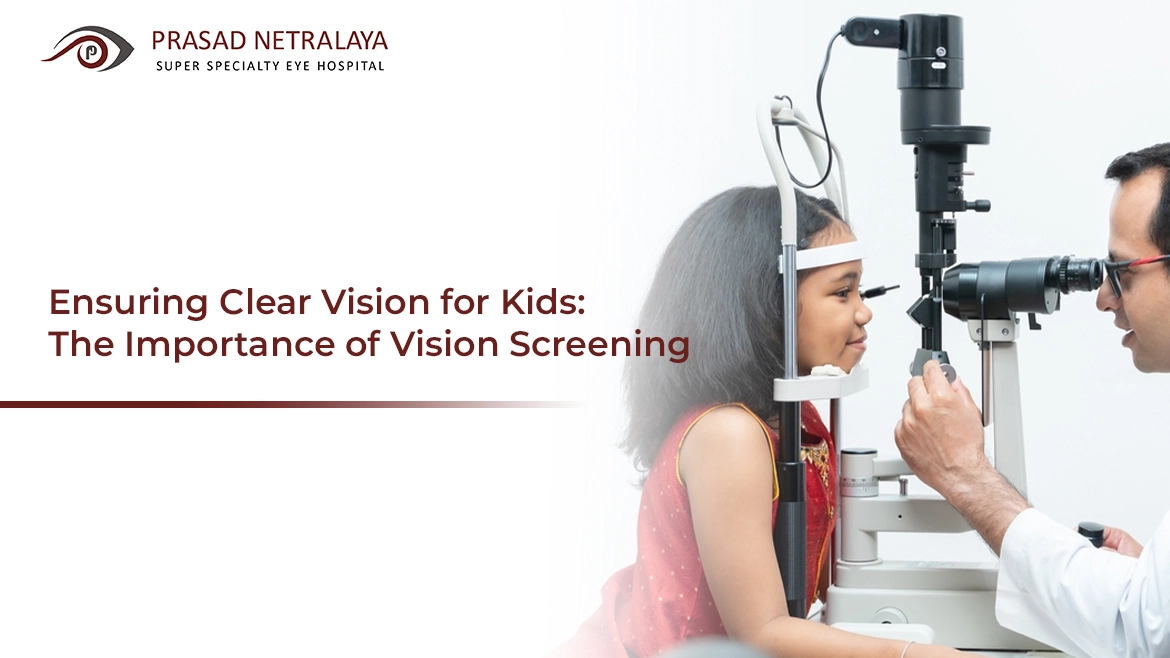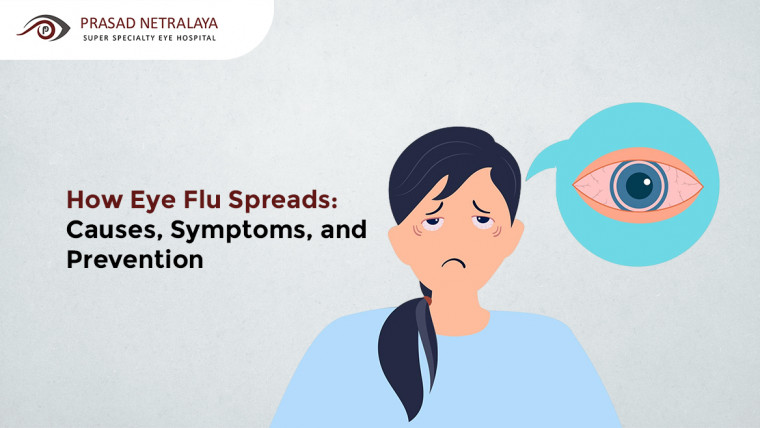Vision screening is a non-invasive and efficient way to detect vision problems in young children, and it’s crucial for their development, learning, and overall well being. Studies show that about 80% of what children learn is through their visual system.
If vision problems are not treated in students, they can lead to academic difficulties, social isolation, and even safety concerns.
In this blog, we will cover what vision screening is and why it’s important for kids.
Table of Contents
What Is Vision Screening?
A vision screening or eye test is a quick exam that assesses your ability to see things up close and far away. Simply put, it helps assess how strong your eyesight is and recognize potential vision concerns.
Why Is Vision Screening Important for Kids?
Vision screening is important for kids because it helps ensure their eyesight is in good condition. Healthcare professionals from the department of paediatric ophthalmology use screening exams to check for common eye conditions. These conditions are caught early and treated to avoid long-term issues.
Here are the two most common eye conditions found in children.
1. Amblyopia
Amblyopia, also known as “lazy eye”, is a common vision disease that primarily affects children. This problem develops when the brain and the eye are not properly synchronized, causing one eye to become stronger than the other. If left untreated, this can result in permanent loss of vision in the affected eye.
2. Strabismus
Strabismus, commonly known as “crossed eyes”, is a disorder in which the eyes do not align properly with one another. This is especially concerning in children since it can lead to amblyopia if not addressed.
Also Read : Paediatric Ophthalmology
When Should Kids Be Screened for Vision Problems?
According to the American Academy of Ophthalmology, children should have their vision examined at regular intervals, beginning at birth. Here’s the recommended screening schedule you can follow:
- Paediatricians or neonatologists should check newborns for general eye health.
- At six months of age, infants should undergo their first thorough eye examination.
- Children’s vision and eye alignment should be tested at normal paediatric examinations when they are 3 and 4.
- Before entering kindergarten, children should undergo a thorough eye test by the age of 5.
- Children should continue to receive normal paediatric exams every one to two years beyond the age of five to monitor their vision and eye alignment.
What Happens During a Vision Screening?
The screening process used by the department of paediatric ophthalmology includes a variety of tests and instruments. Depending on the child’s age, these can change.
Here’s a list of vision screening tests we recommend your kids go through.
1. Visual Acuity Test
This examination evaluates your child’s distance vision skills for letters or images. Your child will be asked to read aloud letters or pictures from a chart placed at a distance during this test.
2. Autorefraction Test
The purpose of this test is to detect refractive defects such as nearsightedness, farsightedness, or astigmatism using devices that assess the eye’s focusing ability.
3. Eye Alignment Test
This test determines whether or not your child’s eyes are correctly aligned and working together.
4. Binocular Vision Test
This exam assesses how well your child’s eyes work together as a team as well as their ability to detect depth.
5. Eye Health Exam
This is a general eye test for your child. It includes the examination of the pupils, optic nerve, and retina.
Ensure Better Eye Health for Kids With Vision Screening
Regular vision screening is the best way to ensure your child’s eye health. It can help in the early detection and treatment of any vision problems while also avoiding long-term complications.
Parents can begin by taking simple steps such as scheduling regular paediatric ophthalmology appointments, establishing good eye hygiene practices, and encouraging a healthy lifestyle in general.
Visit Prasad Netralaya for comprehensive eye care. Our skilled ophthalmologists are committed to providing the best possible eye care to all of our patients, including children.
Contact us today to schedule an appointment!


![What Is Oculoplasty [The Secret to Youthful Eyes Revealed]](https://prasadnetralaya.com/wp-content/uploads/2023/04/Apr-blog-banner-3-760x428.webp)
